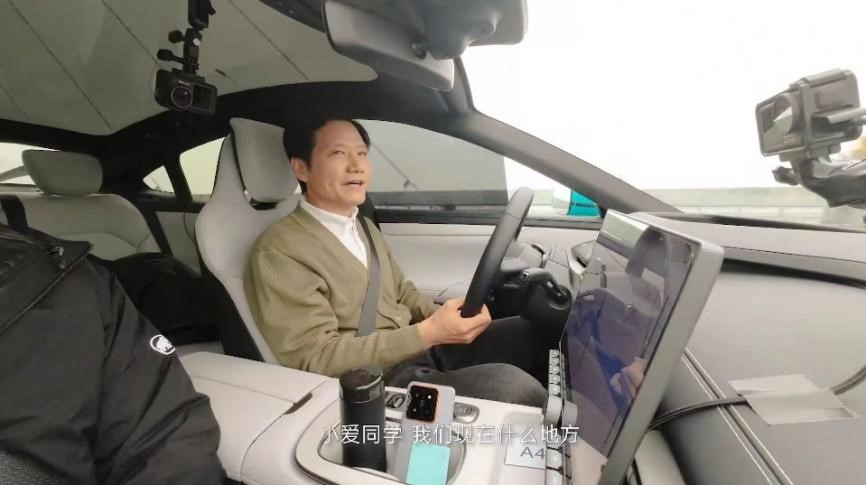As the future of the automotive industry, autonomous driving technology is gradually moving from concept to reality. "Apollo Go" has not faded away, the Internet is rumored that Xiaomi is recruiting unmanned safety officers in the near future, although it has not been officially confirmed by Xiaomi, but according to China Exportsemi Web, authoritative media have been confirmed from the recruitment information publisher The recruitment news is true. This not only marks Xiaomi's in-depth layout in the field of smart cars, but also highlights the new opportunities and challenges faced by the entire industry.
Industry background and development trends
The development of autonomous driving technology has gone through half a century and is now one of the important development directions of the automotive industry. According to the Huajing Industry Research Institute, China's autonomous driving market reached 289.4 billion yuan in 2022 and is expected to continue to maintain rapid growth in the coming years. Government policy support, such as the New Generation Artificial Intelligence Development Plan, provides a solid foundation for the commercial application of autonomous driving.
The market size and growth potential of the autonomous driving industry are huge. According to the data, the size of China's sensor market in 2022 will be 309.69 billion yuan, with an average annual compound growth rate of 12.26%. This growth rate not only reflects the rapid expansion of the market, but also indicates the strong momentum of autonomous driving technology in terms of hardware support.

Picture: It is rumored that Xiaomi is recruiting unmanned safety officers (Lei Jun is demonstrating the intelligent driving system of Xiaomi cars in the picture)
Competitive landscape and business dynamics
In China, driverless car companies can be divided into three camps: Internet/high-tech companies, vehicle manufacturers and start-ups. High-tech companies such as Baidu and Didi have been active in the operation of smart car projects, forming the first camp; Vehicle companies such as GAC, Geely, BYD, Changan, etc. constitute the second camp; Startups such as AutoX, Pony.ai, and WeRide are in the third camp. The enterprises are mainly distributed in Guangdong, Zhejiang, Beijing, Jiangsu and other central and eastern regions, especially in Guangdong.
Overseas, the progress of unmanned driving is also accelerating. Google's parent company, Alphabet, has made a multi-year, $5 billion investment in self-driving business, and its subsidiary Waymo has commercialized fully autonomous vehicles, offering 50,000 paid trips per week, especially in San Francisco and Phoenix. Tesla is also actively advancing its Robotaxi service, with plans to achieve Full Self-Driving (FSD) approval in 2024 and roll it out globally.
Technological development and innovation driven
The development of autonomous driving technology is driving innovation in the automotive industry. With the application of artificial intelligence, big data, cloud computing and other technologies, the perception, decision-making and execution capabilities of driverless cars are constantly improving. The development of Internet of Vehicles technology provides driverless cars with richer sources of information and efficient means of communication. The competition between domestic and foreign companies in the field of mass production autonomous driving has entered a white-hot stage. For example, Momo Zhixing has made remarkable achievements in the field of mass production of autonomous driving, with nearly 20 models, becoming the first in domestic mass production of autonomous driving, and is rapidly developing in urban pilot assisted driving (NOH), which is expected to be installed in one million vehicles in the next two years.
Policy support and regulatory construction
The government's support for driverless technology is not only reflected at the policy level, but also gives a clear direction in the construction of regulations. The Regulations on the Administration of Intelligent Connected Vehicles in the Shenzhen Special Economic Zone passed by Shenzhen are the first time in China that they have made clear provisions on the market-oriented application of intelligent networked vehicles, providing a legal basis for the commercial operation of driverless vehicles.
Security Challenges & Risk Management
The safety of driverless cars is the main focus of the public. Risks such as technology loss and cyber security need to be addressed by strengthening technical verification, testing, and establishing a security management system. Governments and industry organizations need to step up regulation and set stringent safety standards.
Industry impact and outlook
The development of driverless technology will profoundly change the pattern of the automotive industry, improve traffic efficiency, reduce traffic accidents, and promote the construction of intelligent transportation systems and smart cities. It is expected that in the future, autonomous driving technology will be applied in more application scenarios.
Summary
The development of autonomous driving technology is an important trend in the automotive industry, representing technological innovation and changes in social lifestyles. From Xiaomi to Baidu, from Huawei to major automakers, as well as active startups, they are actively promoting the development and application of autonomous driving technology. In the face of this emerging field, we expect the industry to continue to lead the way in innovation, ensure technological safety, promote the healthy development of autonomous driving technology, and bring more intelligent and safe travel options to the public."






